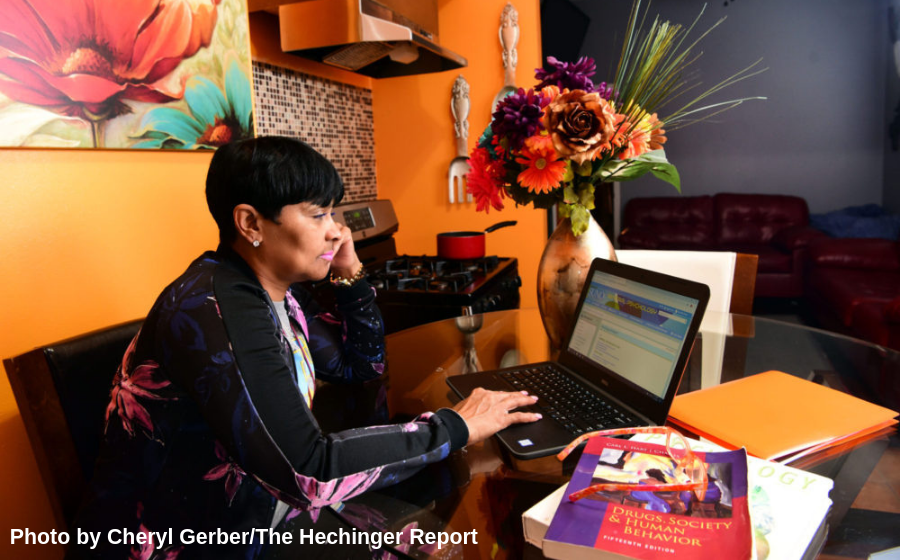July 8, 2019 by Casey Parks
Below is a small excerpt from The Hechinger Report’s ‘From Prison to Dean’s List: How Danielle Metz got an education after incarceration.’
“…Metz gave away most of the possessions she’d acquired in prison. She let other women have the white jeans and colorful sweat suits she’d brought before the prison changed its rules, outlawing civilian clothing. She left behind her eyeglasses and all of her hair accessories, but she kept the journal. Its opening pages were proof, she thought, of what she’d accomplished inside. The back half remained empty, space left to document the life Metz had thought she’d never get to live.
Metz lived in a halfway house when she first returned to New Orleans. Catholic Charities hired her for an AmeriCorps job packing food boxes for low-income senior citizens, and she was grateful for the work. She’d earned only 29 cents an hour cooking meals in the prison cafeteria. The AmeriCorps job gave her a stipend and a $2,200 scholarship to put toward her education. But Metz spent months unsure if she’d be able to use the scholarship.
She knew a few people who’d gone to college after prison. Her older brother had even earned his master’s degree in criminal justice after he finished his 13-year sentence, but he’d always been the smartest of the nine kids. Metz worried she didn’t have the same special aptitude.
One of the activists who’d helped Metz fight for clemency, Syrita Steib-Martin, had also attended the University of New Orleans after serving nearly a decade in prison, but she had initially been denied entry to the college because of her criminal record. Steib-Martin got in the second time she applied because she left blank the spot on the application that asked about convictions. Steib-Martin went on to her earn her bachelor’s in clinical laboratory science, became a supervisor at a local hospital and ran a nonprofit helping formerly incarcerated women. But Metz didn’t want to lie on an application.
Then, in March 2017, a man named Hakim Kashif visited the halfway house. He told Metz and the other women living there that he’d been released from prison half a decade earlier and was now close to earning his bachelor’s from Southern University in New Orleans. Metz didn’t know Kashif well, but she knew police had indicted him on drug charges in 1993, the same year she’d gone to trial.
Kashif showed Metz his school ID and a schedule of his classes. He carried his report card everywhere he went. He’d finished six semesters with nearly all A’s and B’s.
“You think you can get me into SUNO?” Metz asked him.
“Yeah, girl,” Kashif said. “Come on. I’m going to bring you down there.”
Kashif was self-motivated — he’d never doubted that he could and should earn his degree after he got out — but he knew most people needed more than encouragement once they left prison. He drove Metz the 10 minutes to SUNO that day and walked her to the admissions office. Kashif held the door open, and Metz stepped inside, staring at the building’s beige brick walls in wonder. She’d never been inside a university before…”






